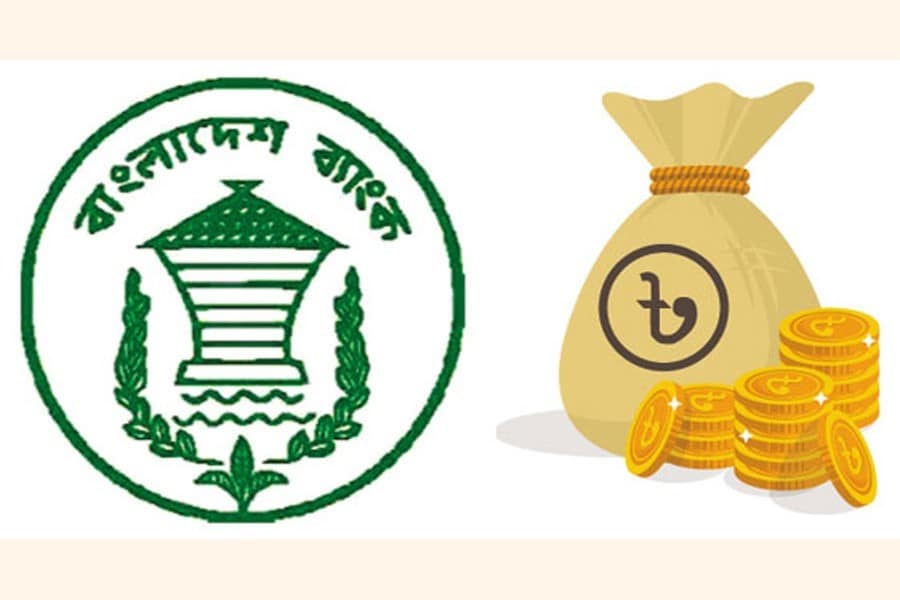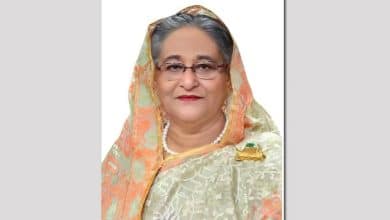BB announces ‘cautious’ monetary policy statement for FY23

Unveiling a ‘cautious’ monetary policy statement (MPS) with a tightening bias, Bangladesh Bank (BB) has projected domestic credit growth ceiling at 18.2 percent in the fiscal year 2022-23 (FY23) accommodating 14.1 percent credit growth in private sector and 36.3 percent in public sector.
“The monetary and credit programs for FY23 will pursue a cautious policy stance with a tightening bias to contain inflation and exchange rate pressures while supporting the economic recovery process, ensuring the necessary flow of funds to the economy’s productive and employment generating activities for long-term economic growth,” said BB Governor Fazle Kabir.
He said this while announcing the monetary policy for FY23 at a press conference at the central bank headquarters here today.
Fazle Kabir said BB has decided to increase its policy rate (the repo rate) by 50 basis points to 5.50 percent from 5.00 percent to deal with the demand side pressures along with ensuring the required flow of funds to the priority and productive sectors to promote supply-side activities.
He said the monetary policy also seeks to promote import-substituting economic activities and dissuade imports of luxury goods, fruits, non-cereal foods, canned and processed foods, etc., to reduce exchange rate depreciating pressure, protect foreign exchange reserves, and control inflation.
“In this respect, BB will introduce a new refinance line of credit for import-substituting products to minimize import dependency and save valuable foreign exchange reserves. The LC margins for luxury goods, fruits, non-cereal foods, canned and processed foods, etc., will be increased comprehensively to discourage their imports,” he added.
He said BB will continue its support to implement the government’s ongoing stimulus packages alongside BB’s refinance schemes in the face of new adversities, including the Russia-Ukraine war in addition to the COVID-19 pandemic.
“Given the shallow trade linkage of Bangladesh with Russia and Ukraine, the direct adverse impact of the war is expected to be limited. The climate and environment-related vulnerabilities, like the recent sudden floods in the North and Northeastern part of the country, could have some headwinds on the country’s overall price stability and growth prospect,” he added.
He mentioned that BB formulates its monetary policy stance and designs monetary and credit programs based on macroeconomic updates and outlooks at home and abroad, subject to any mid-course revision if necessary.
Fazle Kabir, however, said the central bank has been playing a pivotal role with various supportive financial sector policies, backing the government’s stimulus packages to counteract the pandemic-induced economic disruptions.
“BB emphasized ensuring enough loanable funds at low costs for banks and Non-Bank Financial Institutions (NBFIs) to recover the economy from the pandemic-related economic adversities. A total of 28 stimulus packages amounting to about Taka 2.0 trillion (of which BB is implementing 10 stimulus packages amounting to nearly Taka 1.7 trillion) have supported the affected businesses to continue their activities, contributing to investment and employment,” he added.
He informed that BB continued to extend several liquidity enhancement measures in FY22 to recover the investment momentum amid recurrent waves of the pandemic.
“Softened loan classification rules, allowing loan rescheduling and one-time exit facility, especially for the agriculture loans, and lowering the interest rates on agriculture and rural credit were among the key measures contributing to investment recovery and employment generation,” he added.
Fazle Kabir said BB’s policies equally focused on retention and creation of new employment, supporting jobless people who suddenly lost their jobs during the pandemic period in the last two years.
“BB directly helped 3.8 million laborers and staff, including 53 percent of women workers in the export-oriented sectors, through special salary packages,” he added.
He said BB has continued its other policy supports for the financial sector, such as affordable and reliable financial services, especially digital payments and credit, raising awareness of financial education and financial inclusion, especially for women.
The RTGS channel was introduced for all government VAT and Tax payments at the time of import to ensure easy, online, and transparent revenue collection. BB provided support to bring nearly 90 percent of all G2P transactions into the digital format, he added.





